CORVOS news
The CORVOS-Homepage was closed on the 30th of April 2025, i.e. 15 months after the official end, and there will be no more entries or changes. We wish all the students who were supported by this programme and have successfully defended their thesis by 30th April all the best for their future. These best wishes are extended to those students who have not yet finished and are - in most cases - presently kindly supported by funds of their supervisors.

42 - Congratulations to Leon on his successful PhD defense!
Date: 2025-03-24 Filed under: News
On March 6, 2025, Leon successfully defended his doctoral dissertation. The defense highlighted three groundbreaking studies in immunology, focusing on the complement system and its role in inflammation, immune response, and therapeutic strategies:
Study I: Functional Analysis of a Novel Complement C5a Receptor 1-Blocking Monoclonal Antibody
Establishment of the novel C5aR1-targeting antibody 18-41-6, that selectivly binds to C5aR1 and effectively inhibits C5a-C5aR1 interaction.
Study II: The function of the complement system remains fully intact throughout the course of allogeneic stem cell transplantation
Complement activity is stable troughout the HSCT process, immune recovery and inflammatory response troughout the HSCT process
Study III: Inhibition of alternative and terminal complement pathway components modulate the immune response against bacteria and fungi in whole blood
unpublished, in revision after submission to Scandinavian Journal of Immunology
Comprehensive investigation of whole blood inflamation differences between E. coli and A. fumigatus conidia (CD11b, CD64, anaphylatoxin receptor expression, phagocytosis, complement activation, cytokines), consequence of inhibition of FD, C3, C5, and C5aR1 on inflammatory markers
Together, these three studies form a cohesive body of work that significantly advances our understanding of the complement system in various clinical contexts. The novel antibody targeting C5aR1 offers a promising therapeutic tool, while the stem cell transplantation study challenges our understanding of immune dynamics during transplantation. Finally, the exploration of complement modulation in whole blood emphasizes the potential of complement-targeted therapies in infectious diseases.
The successful defense marks the culmination of years of rigorous research and sets the stage for further advancements in the field. As the research moves forward, it holds promise for better therapeutic strategies for autoimmune diseases, transplantation, and infectious diseases.
.jpeg)
41 - Julia's Defense
Date: 2024-12-30 Filed under: News
We are happy to share that Julia successfully defended her PhD in Paris on December 18th, 2024. Her doctoral dissertation focussed on acquired abnormalities in complement-mediated glomerulonephritis, and highlighted three studies :
Study I: Functional characterization of anti-C3bBb autoantibodies and C3 Glomerulopathy phenotype. Julia has developed new biochemical assays to identify IgG autoantibodies targeting the C3BbB convertase, and found association of autoantibodies function with the complement alternative pathway overactivation and the disease severity of C3 Glomerulopathy.
Study II: Spectrum of anti-factor B associated glomerular diseases in adults. Julia highlighted that anti-Factor B was strongly associated with infection-associated glomerulonephritis. The functional characterization of these autoantibodies highlighted the proconvertase C3bB formation and the C3bBb stabilization as two important mechanisms of alternative pathway dysregulation.
Study III: Monoclonal immunoglobulins in C3 glomerulopathy and primary immunoglobulin-associated membranoproliferative glomerulonephritis. Julia observed that monoclonal gammopathy-associated to C3G or primary Ig-MPGN is associated with a poor renal outcome and a chronic systemic overactivation of the complement classical pathway.
Overall this work provides new pieces in our understanding of the pathophysiology of complement-mediated glomerulopathies but also paves the way for the use of new diagnostic assays for C3bBb convertase targeting autoantibodies and complement-targeted therapies to improve patient outcomes.
Picture

40 - Mikel earned his CORVOS apron
Date: 2024-12-15 Filed under: News
On a cold December day in Helsinki, the 13th December 2024, Mikel Rezola Artero defended his PhD successfully to gain a PhD from University of Helsinki and University Sorbonne in Paris. In his thesis, entitled “Mechanisms of complement subversion in Infection and cancer” he compared the evasion strategies pathogens and tumour cells employ to evade the complement system.
On the pathogen side, he explored how P. falciparum sporozoites resist complement attack through hijacking of the complement regulator C4b binding protein (C4bp).
On the tumour side, he investigated the mechanism behind the pro-tumoural role of intracellular factor H (FH) by a combination of transcriptomics in patient tumours, cellular and biochemical assays that demonstrated that intracellular FH acts as a multitasking tumour-promoting effector by regulating cell cycle progression and by maintaining cytoskeleton organization.
Thus both pathogens and tumour cells employ different, but on the other hand, similar mechanisms.
Ruben Pio Oses, Navarra, Spain, who was also a referee of the thesis earlier, acted as opponent. The other referee, and speaker of CORVOS, Reinhard Würzner, Innsbruck, Austria, was also in the evaluation committee on site. The two supervisors, Seppo Meri, Helsinki, Finland and Loubka Roumenina, Sorbonne, Paris, France were also present. The evening before, the candidate and the invited guests met at a typical Karelian restaurant and after the defence in the prestigious and picturesque Villa Aikala with a Lebanese buffet.
Congratulations to Mikel for his remarkable accomplishment!
Group Picture
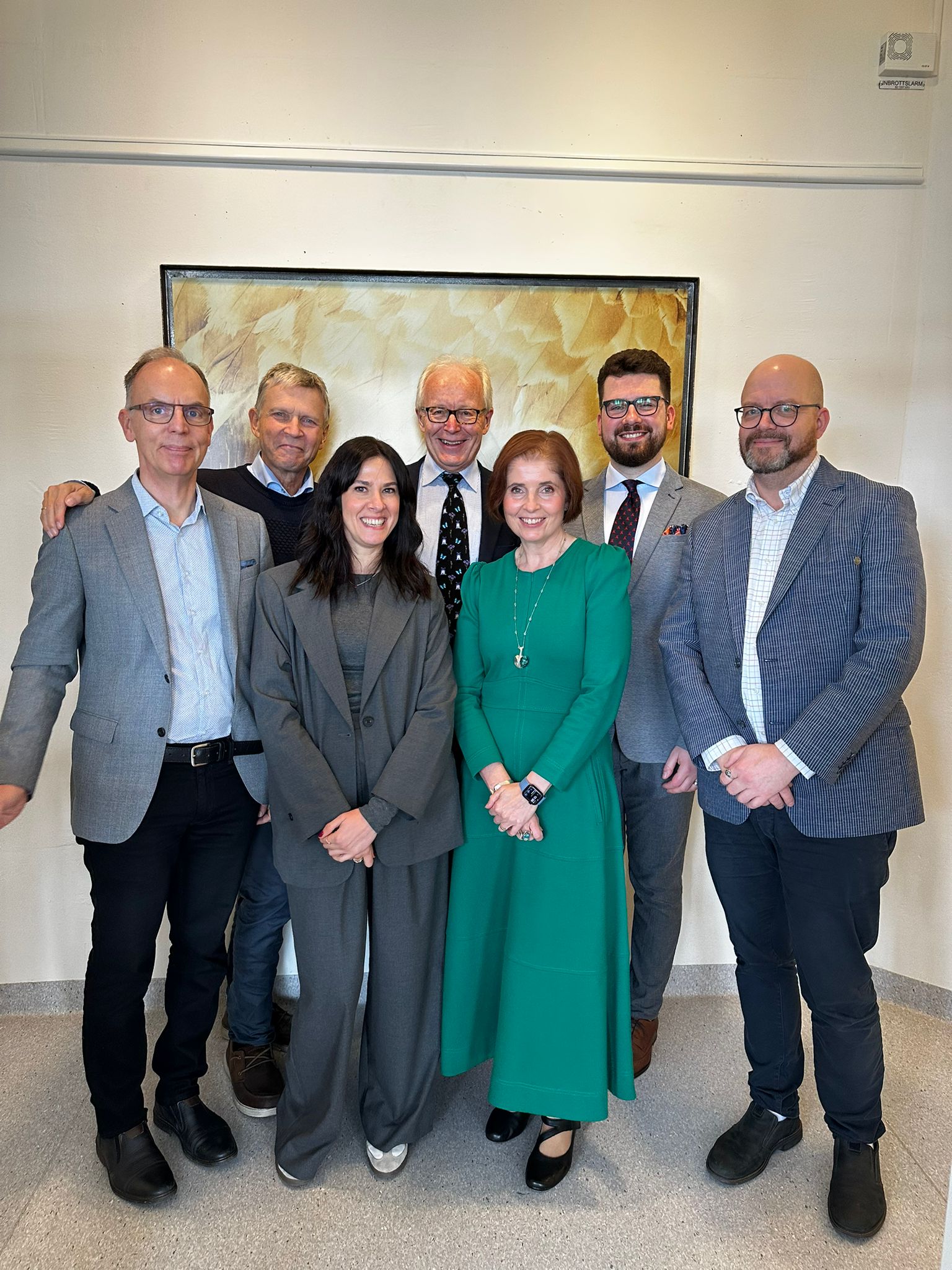
39 - Congrats to Michal
Date: 2024-11-10 Filed under: News
We are pleased to announce that Michal successfully defended his PhD thesis on October 25, 2024. His work focused on the complement evasion mechanisms developed by human pathogens, mainly Acinetobacter baumannii, Klebsiella pneumoniae, and Streptococcus pyogenes.
Papers I and II were dedicated to A. baumannii, a worrisome complement and antibiotic-resistant pathogen. In these papers, Michal screened many isolates from the genus Acinetobacter and aimed to characterize their MAC evasion strategy. He found two potential mechanisms worthy of further investigation.
In paper III, the focus switched to K. pneumoniae, another serious human pathogen. This study highlighted a surprising connection between complement and colistin resistance in isolates obtained from patients. This study delivered results worth considering in the epidemiology of Klebsiella infections.
Paper IV aimed to provide a treatment option that counteracts the complement evasion mechanism in S. pyogenes. This bacterium acquires the complement inhibitor factor H from serum to evade opsonization. Replacing the serum-bound inhibitor with the FH6-7/hFc fusion protein increased complement activation and resulted in better animal survival in the mouse model. This protein highlighted the possibility of using bacterial evasion mechanisms against the bacteria themselves.
Taken together, Michal's findings gave us a better overview of bacterial infections and their complement evasion mechanisms. As antibiotic resistance among human pathogens becomes more serious, novel treatment options are needed.
We wish Michal all the best for his future career and research projects.
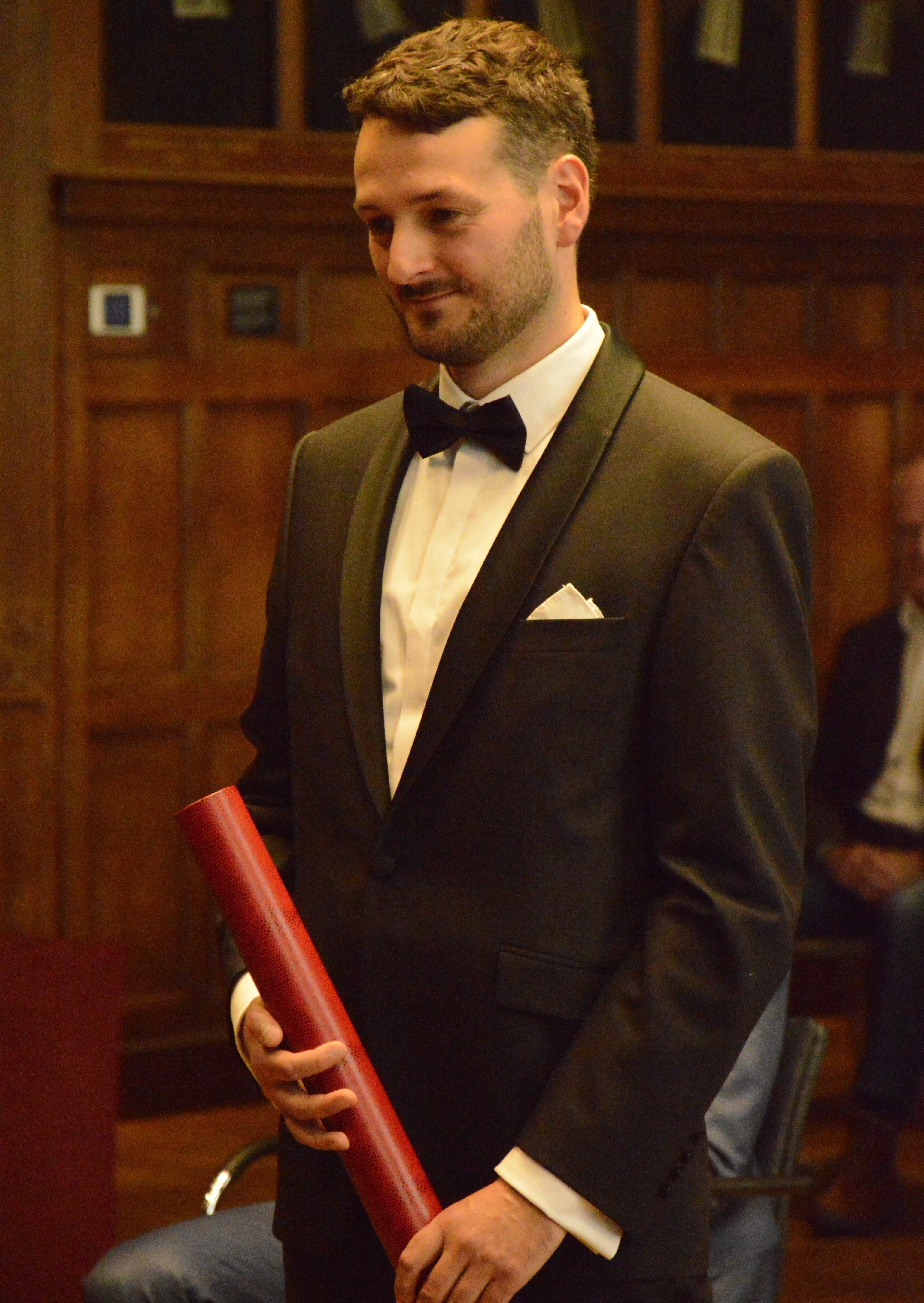
38 - Frerich's Defense
Date: 2024-11-01 Filed under: News
On October 3rd, Frerich successfully defended his doctoral dissertation in Utrecht. His thesis provided valuable insights into how Gram-negative bacteria escape killing via the complement system.
Frerich’s research comprised of four studies:
- The first study found that the LPS O1-antigen in Klebsiella pneumoniae correlates with resistance to complement-mediated killing by preventing proper polymerization and membrane insertion of C9, impairing MAC formation. Despite higher complement deposition, O1-antigen leads to increased soluble MAC (sMAC) release. These findings suggest that O1-antigen blocks effective MAC assembly and that directly labeled C9 is more useful for studying MAC formation than detection antibodies.
- The second study explored how mutations in the phoQ gene, which occur during the evolution of colistin resistance in Klebsiella pneumoniae, affect bacterial survival against immune system clearance. The phoQ mutation reduces capsule production, making the bacteria more susceptible to complement-mediated killing through the classical pathway. These findings reveal a trade-off between antibiotic resistance and increased vulnerability to immune system attack.
- The third study examined how an imbalance between C5b and C9 ratios affects Klebsiella pneumoniae's resistance to MAC-mediated killing. Excessive C5 conversion was found to impair C9 polymerization and MAC formation, allowing the bacteria to survive. Adding exogenous C9 or inhibiting C5 conversion restored MAC activity, providing insight into a novel mechanism of resistance that could inform future antimicrobial strategies.
- The fourth study investigated how Pseudomonas aeruginosa resists complement-mediated killing in human plasma. Frerich’s work identified a novel operon, srgABC, with the srgA gene product playing a key role in preventing MAC-mediated killing. Mutations in purine and biotin synthesis pathways also increased the bacteria's persistence, revealing multiple, complex mechanisms contributing to resistance.
The findings highlight the complexity of bacterial immune evasion and the potential for targeting these resistance pathways in the development of new antimicrobial strategies.
contact
PROGRAMME SPEAKER
Reinhard Würzner, M.D., Ph.D.
Schöpfstraße 41
A-6020 Innsbruck
Imprint
Partner
This project has received funding from the European Union's Horizon 2020 research and innovation programme under grant agreement No 860044

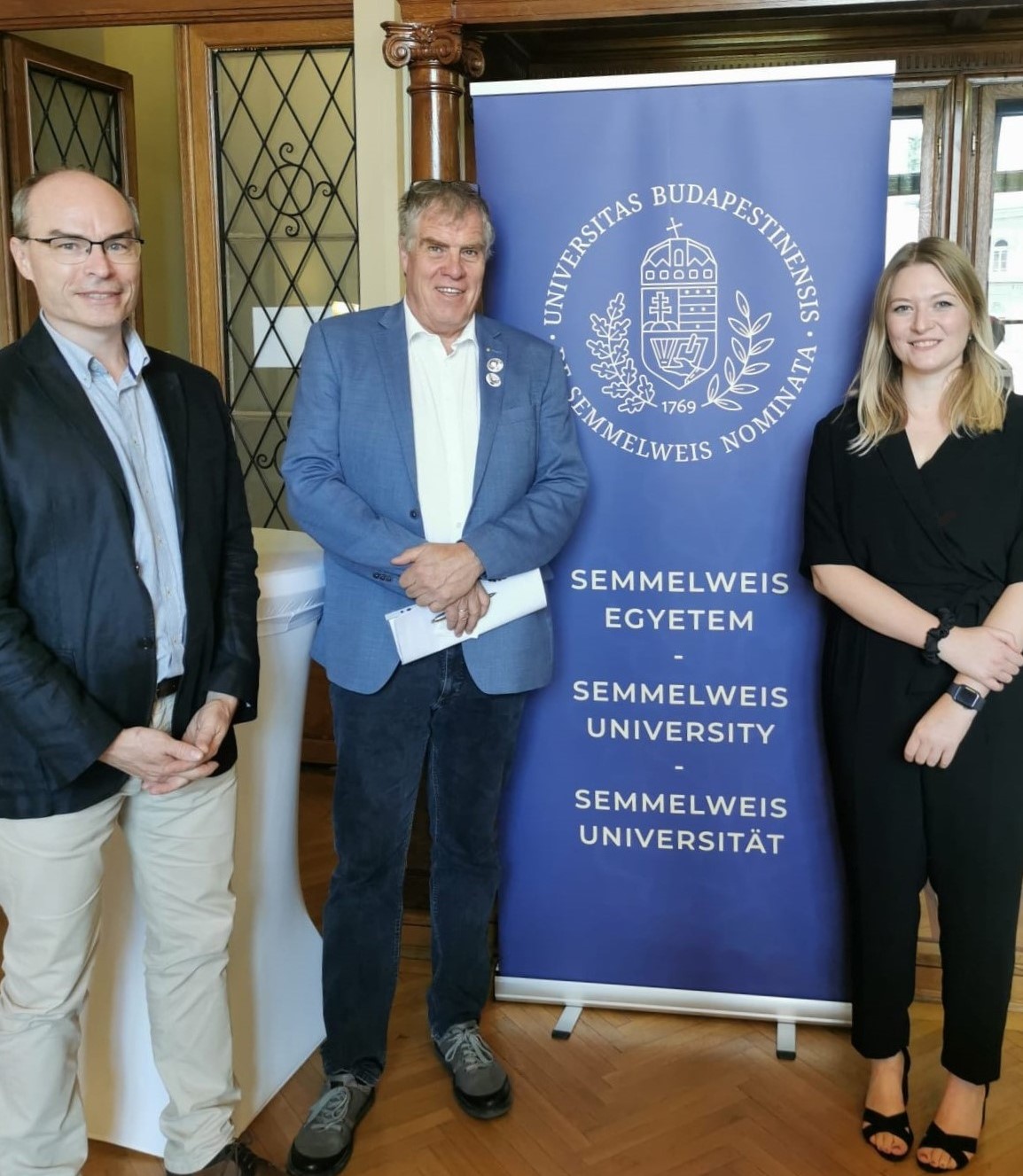
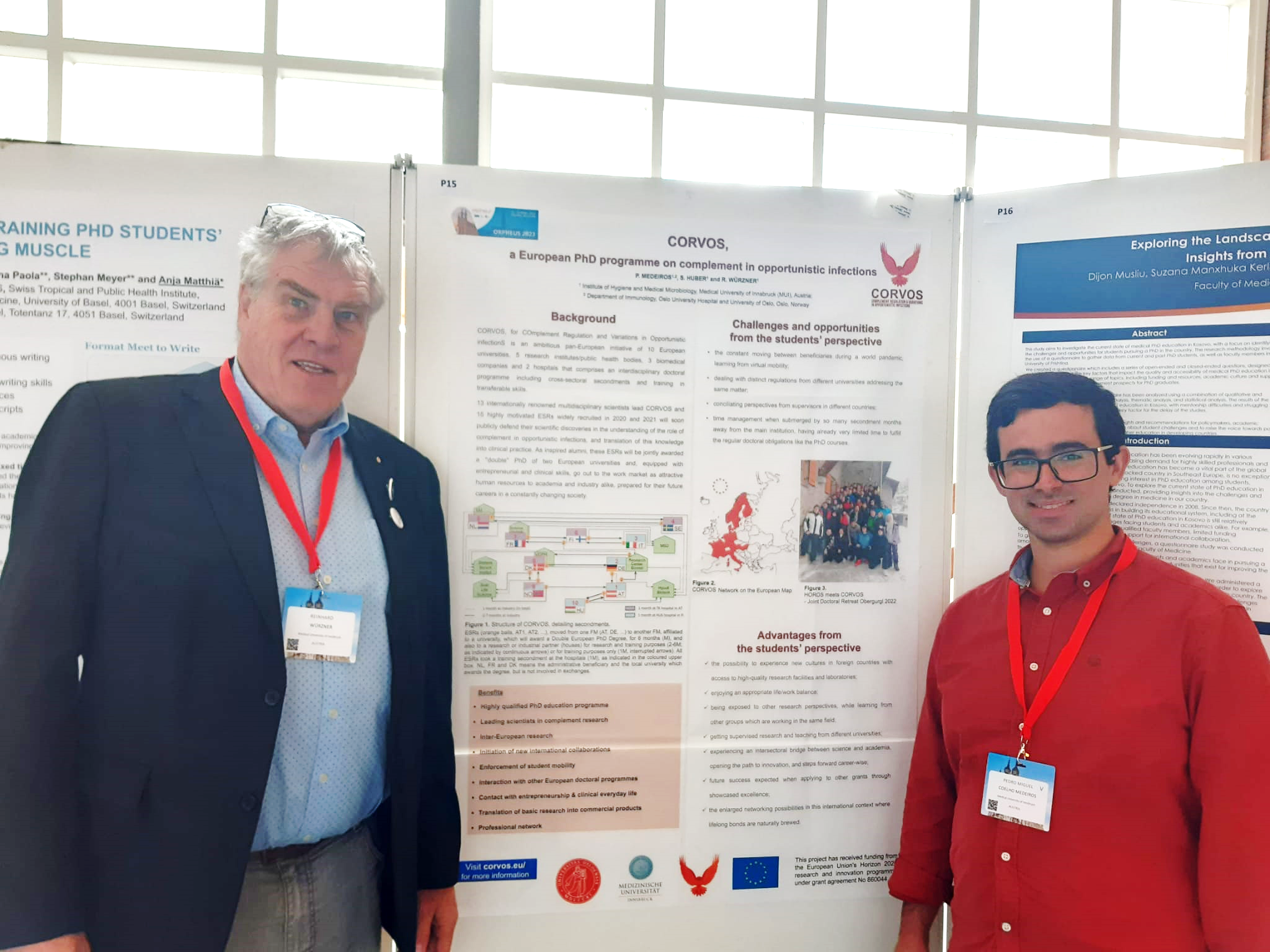
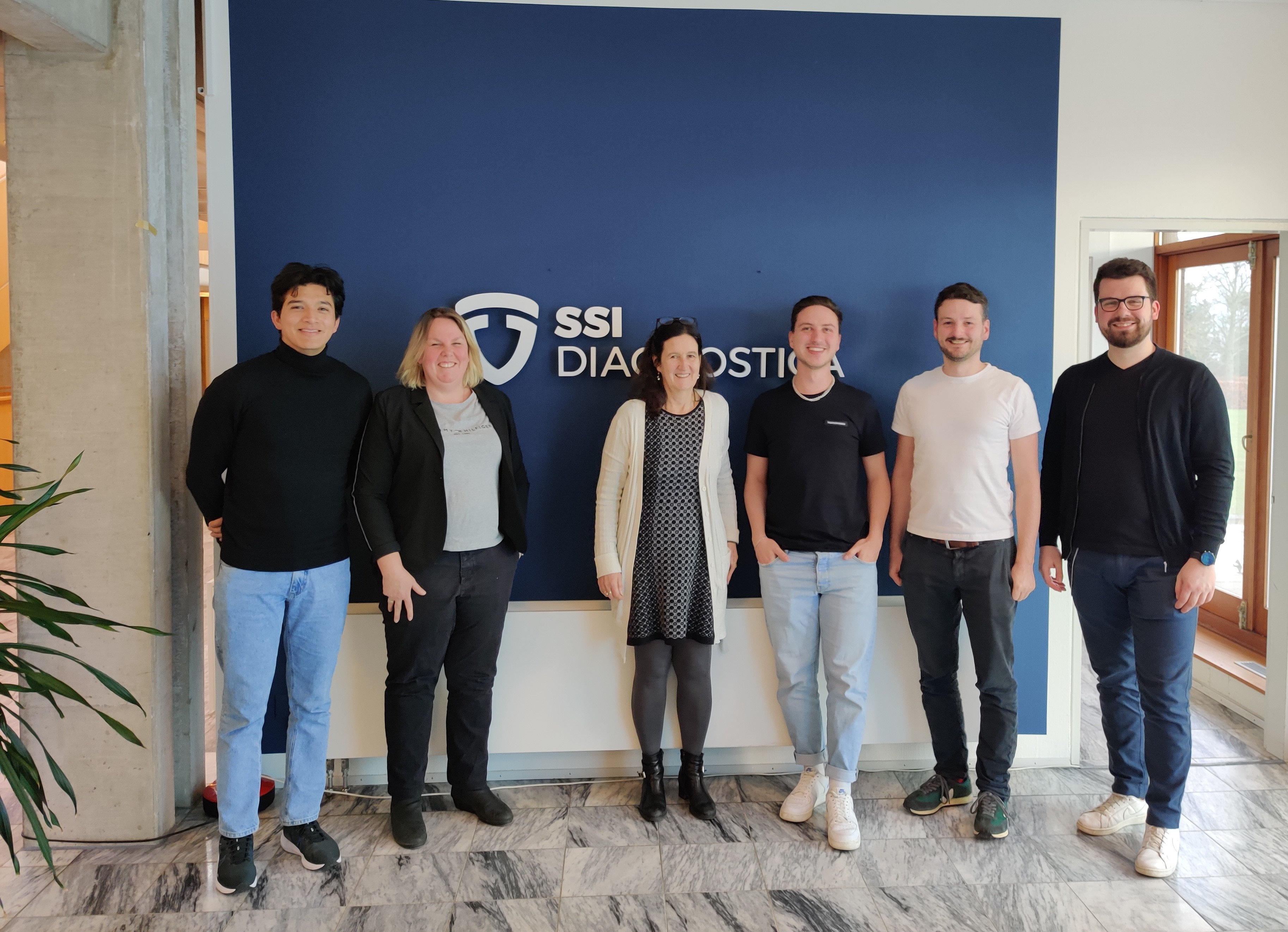
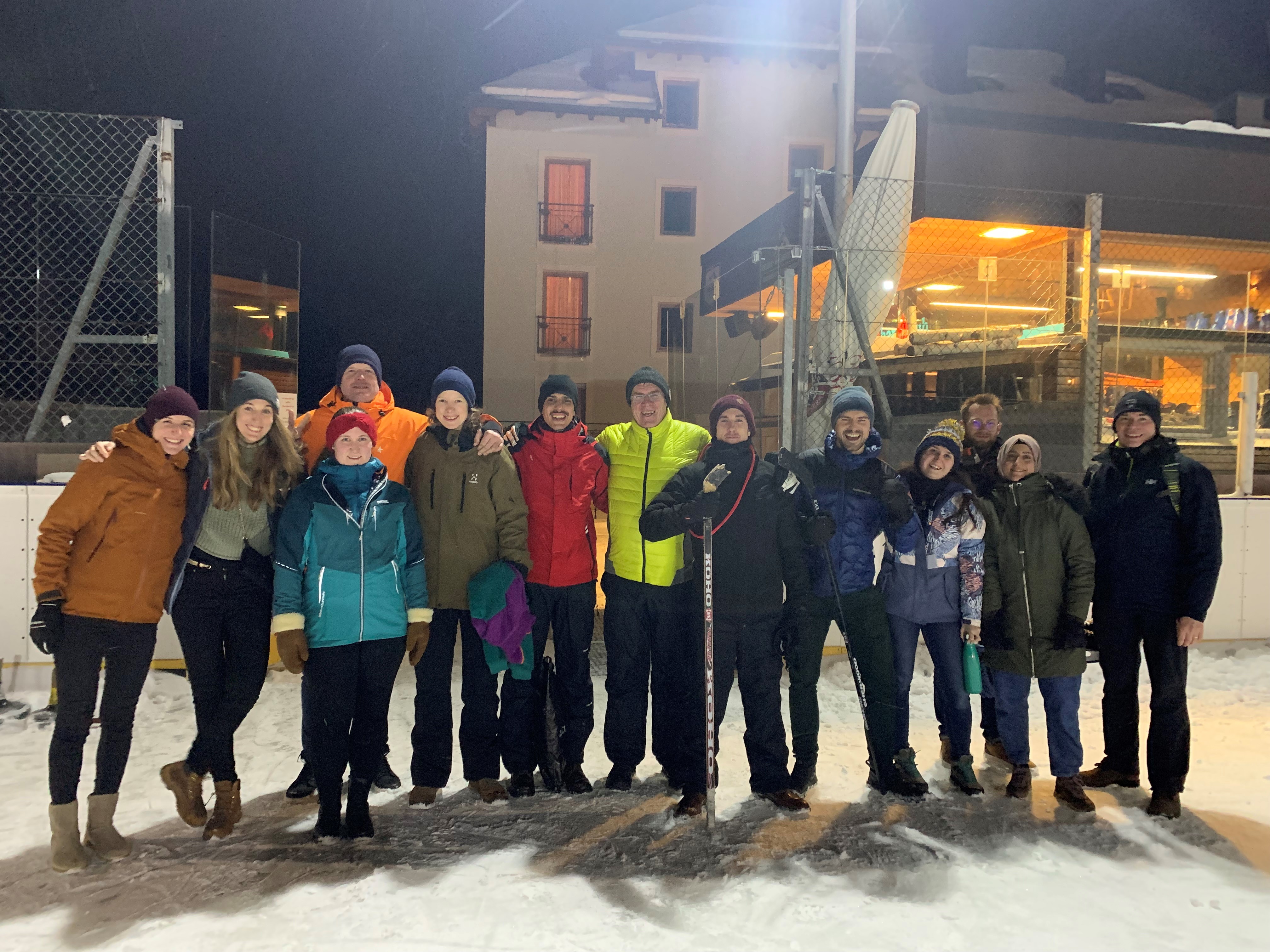


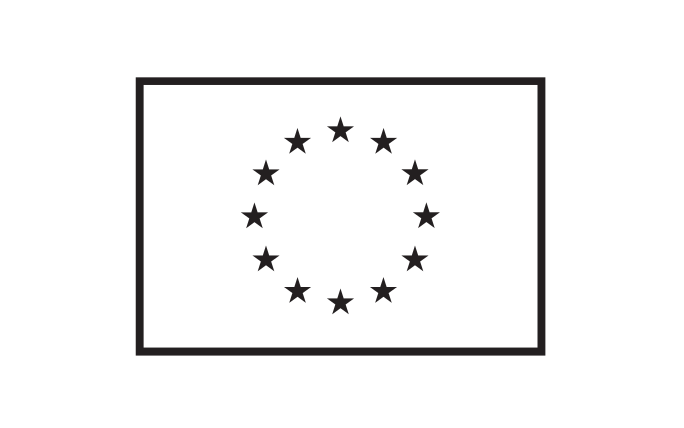



.jpeg)


